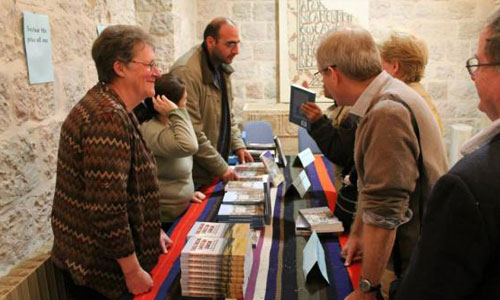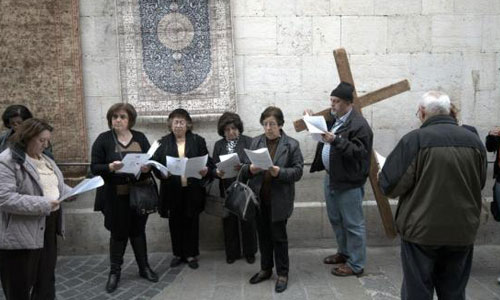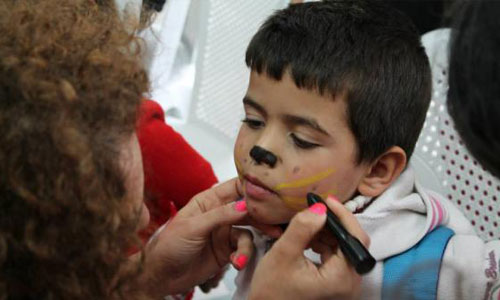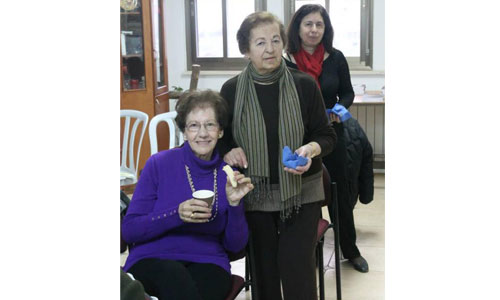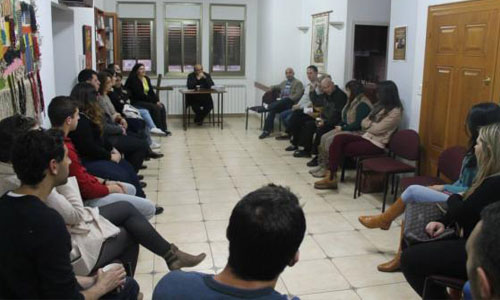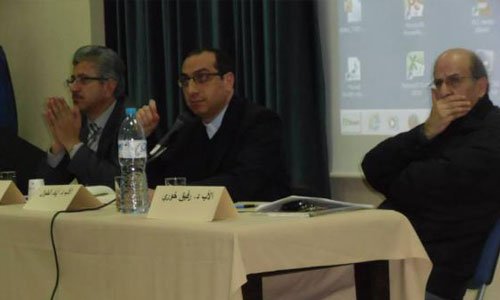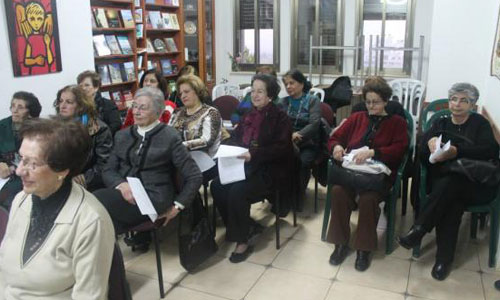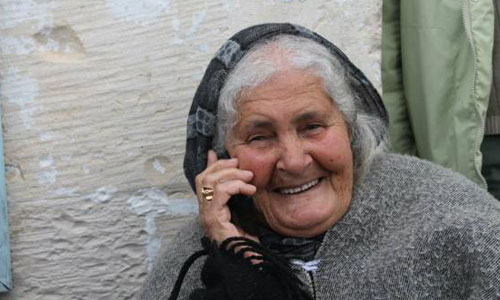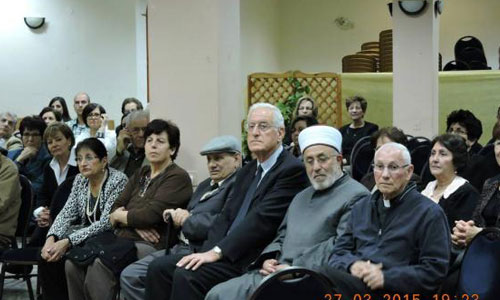
Was it a homecoming celebration for Assis Naim and Cedar Duaybis returning to Galilee where they had, like Jesus, spent so many formative years? Or was it another of Sabeel Nazareth’s events attracting 100’s of local Palestinian Christians to an ecumenical and interfaith gathering? Or was it a time for the Interim Director with Samia Khoury to meet with the Sabeel team and committee in Nazareth to shape the future?
It was all three of these things and more.
On Friday evening March 27 at the St Anton Centre more than 180 locals came out, after a long week, to hear a talk by Rev Ateek and Cedar on the “The Ministry of Sabeel and Liberation Theology”. One observer afterward said: “We really needed to hear this and learn more about Palestinian Liberation Theology Assis Naim explained so well what it is all about, and Cedar explained why it is so important Everyone should have been here for this. It was so inspiring and informative.
In fact those who were not there can click on here to see a video recording of exactly what was said (in Arabic):
After the Q and A session, and some wonderful Eastern Orthodox singing from a cantor and choir, the crowd feasted on a great array of (lenten) goodies. And then the local committee with the founders and leaders of Sabeel discussed the many future opportunities and ideas moving forward.
When Jesus told his disciples to return to Galilee and to preach the good news to all the world, His Spirit is with us as we spread the good news of the prophetic witness and work of Sabeel and the Followers of Jesus today who spread the gospel of justice and peace for all people.


